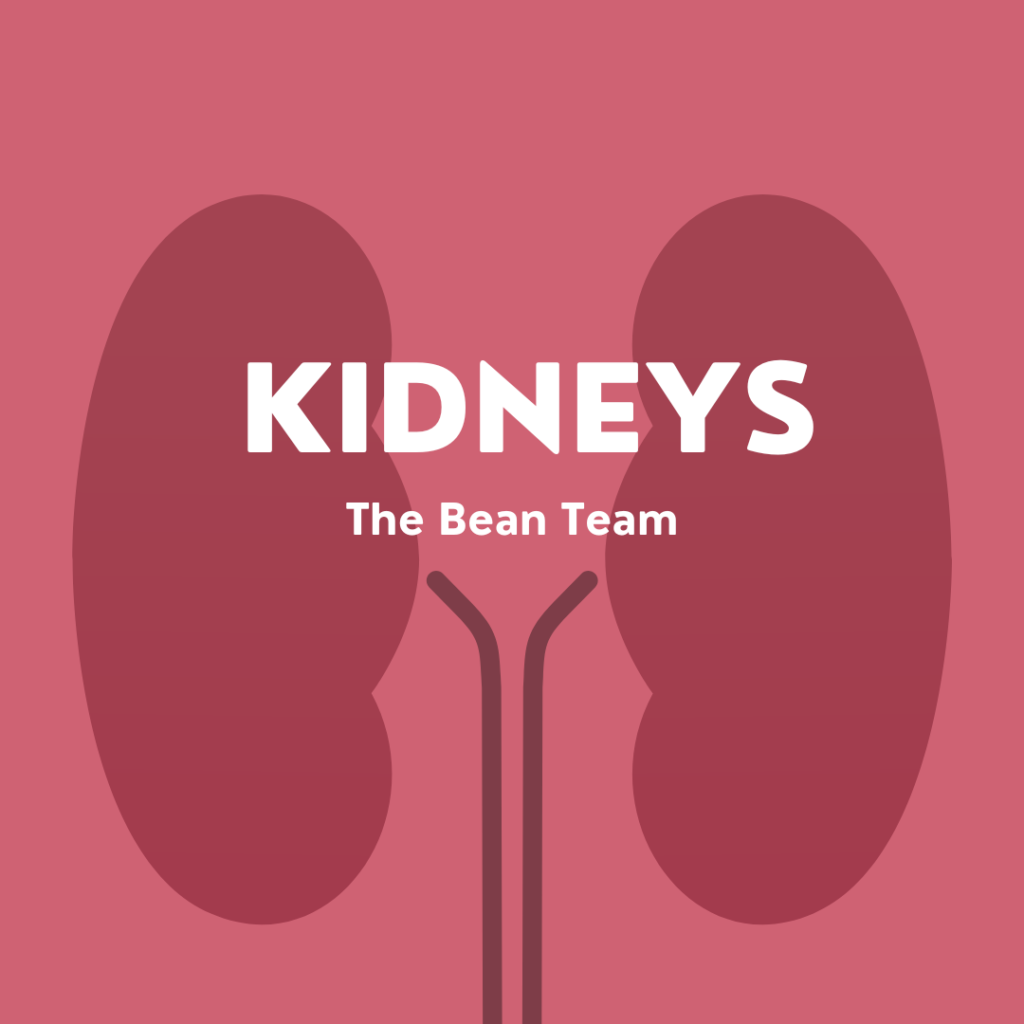Understanding body anatomy helps an individual learn about the body’s different parts, its function, and how to take better care of these vital organs. Here, is the article about the bean-shaped organs present in our body called the kidneys, which play a vital role in keeping the body toxic-free and increasing longevity.
Kidneys, small but mighty organs, play a vital role in maintaining the overall health and balance of the human body. Understanding their function, the importance of caring for them, and how to keep them healthy is essential to living a long and disease-free life. Let’s delve deeper into the fascinating world of the kidneys and learn how to nourish them.

How Kidneys Work
The kidneys are bean-shaped organs just below the rib cage on either side of the spine. The human body has two kidneys. Each kidney is about the size of a fist and performs important functions, such as:
- Filtering Blood: Kidneys filter around 50 gallons of blood daily, removing waste, toxins, and excess fluids, which are excreted as urine. The 50 gallons seems a very big number, how mighty and vital the role of kidneys are, it is really surprising. It is almost 190 liters of blood in a day.
- Balancing Electrolytes: They regulate levels of sodium, potassium, and other electrolytes, ensuring the body’s internal environment remains stable.
- Blood Pressure Regulation: By releasing hormones like renin, kidneys help control blood pressure.
- Bone Health: They activate vitamin D, crucial for calcium absorption and bone health.
- Red Blood Cell Production: Kidneys produce erythropoietin, a hormone that stimulates the production of red blood cells.
Why Take Care of Your Kidneys?
Kidneys are vital for maintaining homeostasis, and damage to these organs can lead to serious health complications, including chronic kidney disease (CKD), high blood pressure, heart disease, and electrolyte imbalances. Early detection and care can prevent long-term issues and improve quality of life. Homeostasis is nothing but a suitable environment to help all the systems work properly so that the body can survive. It creates a state of balance among all the body systems needed for the body to survive and function properly.
How Kidneys Help the Human Body
The kidneys’ role extends beyond filtering waste. They ensure:
- Detoxification: Removal of harmful toxins keeps other organs functioning optimally.
- Fluid Balance: Regulating water levels prevents dehydration or fluid overload.
- Acid-Base Balance: Maintaining pH levels ensures proper enzymatic activity and cellular health.
We have learned that Kidneys are so important for the survival of the human body, so it is vital to take care of these bean-shaped organs and understand if it require expert attention to keep them healthy. With time, a very common issue that develops in Kidneys is kidney stones. Although it is common, taking precautions can help you to stay healthy and have healthy Kidneys.
Kidney Stones: Causes, Symptoms, and Treatment
Kidney stones are hard mineral deposits that form in the kidneys due to a buildup of calcium, oxalate, or uric acid. They vary in size and can cause significant discomfort. If you want to learn about the same, better to consult an expert or medical professional.
Symptoms of Kidney Stones:
- Severe pain in the back, side, or lower abdomen
- Blood in urine (hematuria)
- Frequent and painful urination
- Nausea and vomiting
- Cloudy or foul-smelling urine
Treatment Options:
- Hydration: Drinking plenty of water helps flush out small stones. It is advisable to drink 3 liters of water every day. Creating a healthy habit of drinking 3 to 4 liters of water is good for overall health.
- Medications: Pain relievers and drugs like alpha-blockers ease the passage of stones. These medications is provided by the doctors by examining the conditions of the patient.
- Shock Wave Lithotripsy (SWL): High-energy sound waves break large stones into smaller pieces.
- Surgery: Procedures like ureteroscopy or percutaneous nephrolithotomy may be necessary for larger stones.

Let’s learn more about diseases related to Kidneys.
Other Kidney Diseases
- Chronic Kidney Disease (CKD): A gradual loss of kidney function, often due to diabetes or high blood pressure.
- Acute Kidney Injury (AKI): Sudden kidney failure caused by injury, infection, or medication.
- Polycystic Kidney Disease (PKD): A genetic disorder leading to cyst formation in kidneys.
- Glomerulonephritis: Inflammation of the kidney’s filtering units.
- Urinary Tract Infections (UTIs): If untreated, UTIs can spread to the kidneys, causing pyelonephritis.
Uric Acid’s Role in Kidney Diseases
High uric acid levels can lead to gout and kidney stones. It can also damage the kidneys over time by forming crystals that block kidney tubules. To manage uric acid levels:
- Limit purine-rich foods like red meat and shellfish.
- Stay hydrated to dilute uric acid concentration.
- Include more alkaline foods like fruits and vegetables in your diet.
It is our responsibility to take better care of every organ of the body, so it can help us to sustain a healthy and happy life. We should create a few habits so that the Kidneys say Thank you!
Habits to Keep Kidneys Healthy
- Stay Hydrated: Drink 8-10 glasses of water daily to flush toxins.
- Eat a Balanced Diet: Reduce salt, sugar, and processed foods. Focus on fruits, vegetables, and whole grains.
- Monitor Blood Pressure and Blood Sugar: Keep them in check to prevent kidney damage.
- Avoid Over-the-counter Painkillers: Excessive use can harm the kidneys.
- Quit Smoking and Limit Alcohol: Both can reduce kidney function over time.
- Exercise Regularly: Physical activity improves blood flow and overall kidney health.
- Get Regular Screenings: Early detection of kidney issues can prevent complications.
Exercises for Kidney Health
- Walking and Running: Improves circulation and helps maintain a healthy weight.
- Yoga: Poses like Bhujangasana (cobra pose) and Setu Bandhasana (bridge pose) support kidney function.
- Strength Training: Boosts metabolism and reduces the risk of chronic conditions affecting the kidneys.

Conclusion
The kidneys are unsung heroes of the human body, tirelessly working to keep us healthy. By adopting kidney-friendly habits, staying active, and maintaining a balanced diet, you can protect these vital organs. Remember, a little care today can go a long way in ensuring your kidneys continue to function optimally for years to come.
Please, let us know by your comments about the basic knowledge sharing about the Kidneys in this article. Thanks, stay healthy.

